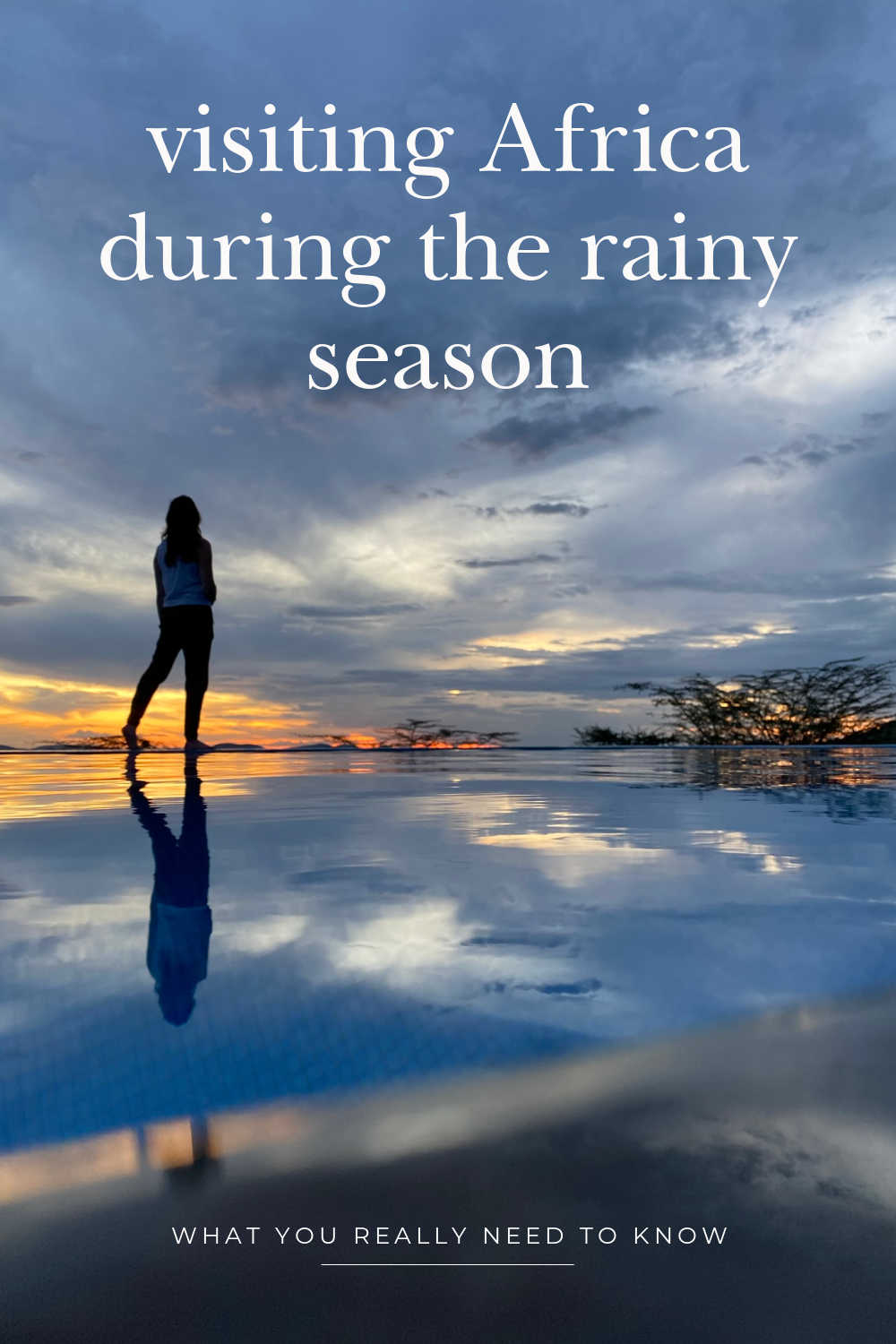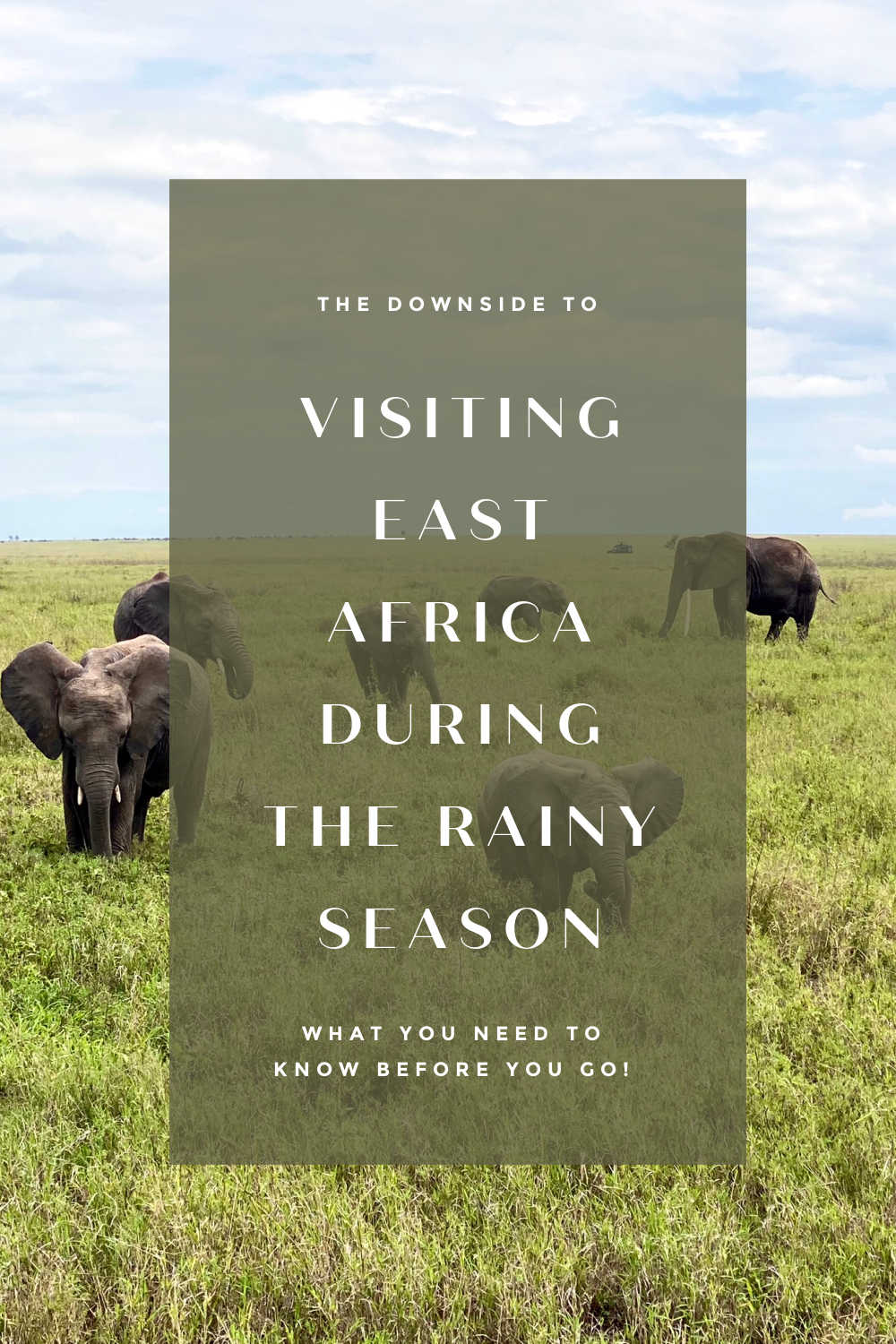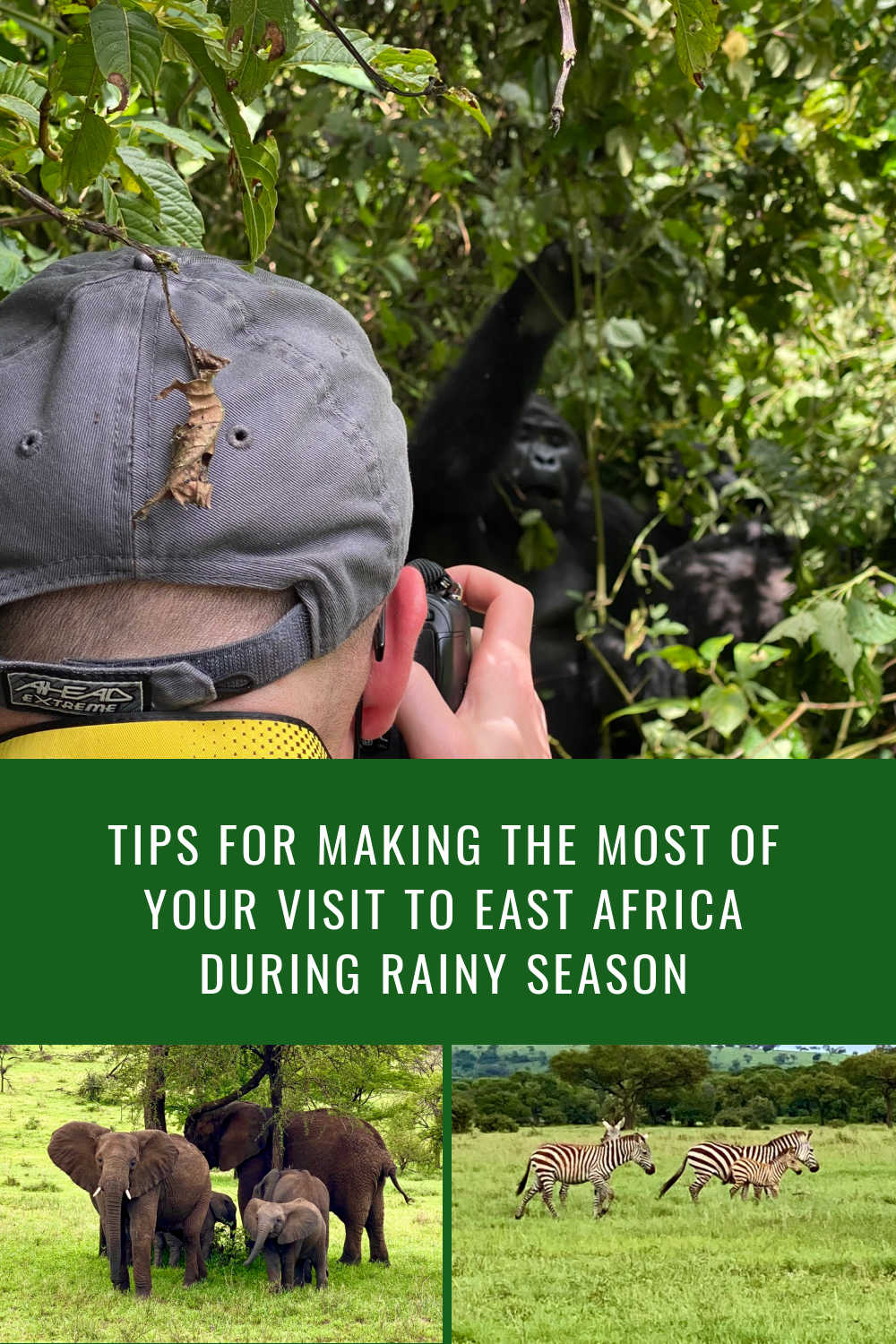rachelteodoro
The Pros and Cons of Going on Safari to East Africa During the Rainy Season
Going to Africa is a bucket list trip for many! You could read on and on about when you should go to Africa, but sometimes your schedule {like ours!} dictates when you are actually available to travel. Most travelers choose to visit during the dry season, which is usually the end of June to the end of October. After we booked our trip and before we traveled I got sucked into blog post after blog post and article after article telling me why November was a horrible time to visit Africa! I got nervous and started tempering my expectations. After taking a three-week-long trip to East Africa in November, where we went on safari in Queen Elizabeth National Park, trekked gorillas in Uganda, went to Ngorongoro Crater, and made our way through Serengeti National Park before ending our trip with relaxation in Zanzibar, I started a running list of the pros and cons of visiting East Africa on safari in November. The pros list was surprisingly longer than I anticipated and this was the post I was hoping to read before our trip. Since I didn't find an honest report {outside of the ones that said don't book the trip!}, I am sharing our experience here in the hope that it will help you too!

The Pros and Cons of Going on Safari to East Africa in November
In the Northern Hemisphere, we usually think of having four seasons: spring, summer, fall, and winter. In many African countries, there are generally two seasons and they are divided into rainy and dry.
I'm focusing on East Africa because that area has the most famous safari destinations like the Serengeti and the Masai Mara. It's also where I have experience visiting. Twice. Once in August {dry season} and again in November {rainy season}.
East Africa has incredibly diverse landscapes, vibrant cultures, and stunning wildlife. You can find adventure here year-round. Most travelers tend to opt for the dry season to visit this region, but I think that there's a hidden gem just waiting to be discovered in November, which is typically known as the rainy season. I'm going to dive into why visiting East Africa in November can be an unforgettable experience and provide tips on how to make the most of your rainy season adventures!
Understanding the Rainy Season in East Africa
November marks the onset of the rainy season in East Africa. It's usually characterized by sporadic showers and lush green landscapes. Some people are deterred by the prospect of rain, but this season gives you a unique opportunity to witness some of the region's natural beauty in full bloom.
There are typically two rainy seasons in East Africa. The first rainy season is in November and December. Most locals call it the short rainy season. You'll find more sporadic rains that happen for a short period of time. The major rainy season lasts from March to May. This rainy season brings rains that last for much longer, possible flooding, and roads that can be destroyed. I asked several guides, both of which said to avoid these months if possible. It can be miserable for guests visiting and many daily game drives and activities are canceled due to weather.
The reality of visiting during the rainy season is that we would sometimes experience rain during the day. The rain was often short and usually in the late afternoon or early evening. We did have one day in Zanzibar and it rained nearly the whole day. It was mostly warm, sunny, and humid. I never got soaked through and we never canceled our game drives because of the rain. Mostly what we experienced were overcast skies in the late afternoon.
The Benefits of Visiting East Africa in November
Fewer Crowds
One of the biggest advantages of visiting East Africa in November is the fact that there are fewer crowds. Our safari guide commented often on how it's so very different visiting even some of the most popular parks and areas during this time of year. In peak dry season months, there are throngs of tourists descending on every park. November gives you a more intimate and authentic experience.
You get the opportunity to explore renowned national parks and reserves without jostling for space. You can also sit back and watch nature without feeling like you've got to give someone else a turn.
It's not uncommon to come upon something in nature {let's say a pride of mama lions with their cubs} and the area to be surrounded by trucks. You can't see what's happening, but you know something is there. This happens often, but when you are visiting in the low season, there are less trucks on the road, less visitors and more of an opportunity to get in on the action.
Individualized Attention
With fewer crowds in the parks came fewer people at our lodges. When you go on safari, there is often a lot of changing hotels and lodges to get the most out of your experience during your time in country. We stayed in more than half a dozen tented camps and lodges during our three-week trip and it wasn't uncommon that we were one of the only guests checked in at night. Most of our lodging was less than half full.
We often had common areas like the pools and the dining room all to ourselves! And there was no shortage of staff so we had individualized and quick attention to anything we wanted or needed.
Lush Landscapes
The rainy season brings about a remarkable transformation in the landscape. You'll see savannahs that are normally brown burst into life with vibrant greenery. You'll also find some incredible wildflowers in bloom that most never get the chance to see in real life!
Part of going on safari is that as soon as you step on African soil, you suddenly become a professional photographer and you are sure that every photo you take is going to be National Geographic-worthy. You'll have plenty of photo-worthy moments during this time of year.
Wildlife Encounters
One of the main reasons you will hear people say to avoid the rainy season for safari is that the wildlife is harder to spot. When the landscape is green and there are pockets of water everywhere, the animals aren't heading out to the common water holes that almost always guarantee sightings.
However, having been on a safari in the dry season {in August in the Masai Mara} and again during the rainy season in November, I found that there were different wildlife encounters. During the rainy season, we saw far more wildlife mating encounters than I had during the dry season. This wasn't just, you know {ahem}, mating {though we spotted some lions doing that!}, it was giraffes and baboons having territorial fights over the females. It was juvenile elephants practicing fighting and gazelles trying to enter into a herd to take over.
We also saw a lot more baby animals. The vegetation is lush during the rainy season, which means that there is an abundance of food. While people mostly think of springtime for wild animals to be born, they are generally born all year long, and many animals are born during this time because the food supply for the extra mouths is high.
We actually happened upon a baby elephant who had just been born in the wild. The mama was still lying down and surrounded by the other elephants in the herd as a form of protection for her and the baby. It was incredible to watch!
Lower Costs
Safari is notoriously expensive! Traveling during the off-peak rainy season often translates to lower costs for accommodations, safaris, and other activities. Many lodges and tour operators offer discounted rates to attract visitors during this period making safari, not cheap, but more affordable, during this time.
The Downside to Visiting East Africa in November
Sunrises and Sunsets
Those magnificent African sunrises and sunsets that you have seen in photos aren't quite as pronounced during the rainy season. There's a whole lot more cloud cover, making those breathtaking photos less of a reality during this time. While watching the sunset during a traditional African sundowner is still an incredible experience, manage your expectations on this one if you are visiting during this time.
Solar Power
Many of the lodges rely on solar power. This is rarely an issue in the bright hot African sun, but if you are staying in a lodge with an incredible tub and you have dreams of filling that tub with warm water and enjoying a soak after a long bumpy game drive, you might want to think again!
I never ran into a problem having enough hot water for showers, but there just wasn't enough solar power during the day to heat up the water for a hot tub bath. I mean, not a reason to cancel your trip, just something to be aware of when traveling!
Closures
You'll want to be mindful of visiting during the off-season and pay attention to closures. There was only one issue we ran into, and it was minor. A dream of mine was to take a hot air balloon at sunrise over Serengeti National Park. During high season, the balloon company easily runs a dozen hot air balloon launches each day from several different locations. During the rainy season, they run only two or three and only at one main location.
This meant that our early morning wake-up call was at 2:30 with a two-hour drive on bumpy windy roads at 3 am. Had we known, we would have selected a lodge that was more centrally located. Not just for the balloon ride, but for our other safari game drives, since we were a bit more removed. This would have been a welcome respite in the high season, but since there was next to no one around, we often drove hours outside of our camp just to get to the main safari areas.
Tips for Making the Most of a Visit to East Africa During the Rainy Season
Pack Accordingly
The November rains in East Africa are generally short and sporadic, so you will want to make sure that you have waterproof clothes and shoes that will stay dry and comfortable in case you do encounter rain. These boots and these pants were my favorite.
Don't Miss The Ultimate Safari Packing Guide
Be Flexible
Prepare yourself for a flexible itinerary! We had lots of very early morning starts and after one particularly heavy rain shower the night before, we planned an even earlier morning start the next day just in case the roads were difficult to pass or washed out. Embrace spontaneity and be prepared to pivot if the weather has different plans
Visiting East Africa in November gives you a really unique perspective to a region that most travelers would avoid during this time. Don't hesitate to book the trip and witness some incredible natural beauty and abundant wildlife and create those unforgettable memories and experiences. As Toto says "God bless the rains down in Africa".
 disclaimer: this post may have affiliate links. By clicking on them and purchasing through them, I may receive a small commission. These small purchases help me to continue to keep writing content and creating at Rachel Teodoro. Thank you!
disclaimer: this post may have affiliate links. By clicking on them and purchasing through them, I may receive a small commission. These small purchases help me to continue to keep writing content and creating at Rachel Teodoro. Thank you!
loading..












No comments
Post a Comment